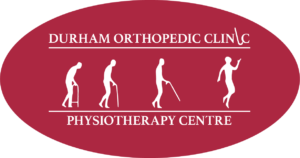Arthritis is a common condition that affects millions of people worldwide, causing pain, swelling, and reduced motion in the joints. While there is no cure for arthritis, physiotherapy offers effective strategies for managing symptoms and improving quality of life. Physiotherapy can help individuals with arthritis stay active, reduce pain, and enhance joint function.
Understanding Arthritis
Arthritis encompasses more than 100 different types of joint diseases, with osteoarthritis and rheumatoid arthritis being the most prevalent. Osteoarthritis is characterized by the degeneration of joint cartilage and underlying bone, while rheumatoid arthritis is an autoimmune disorder that leads to inflammation of the joints. Both conditions can cause significant discomfort and limit daily activities.
How Physiotherapy Can Help
Physiotherapy is a key component in managing arthritis, offering several benefits:
- Pain Relief: Physiotherapists use a variety of techniques to alleviate pain, including manual therapy, heat and cold treatments, and electrical stimulation. These methods help reduce inflammation and improve blood circulation, leading to pain relief.
- Improved Joint Function: Through tailored exercises, physiotherapy strengthens the muscles surrounding the joints, providing better support and reducing the strain on affected areas. This leads to improved joint stability and function.
- Increased Flexibility and Range of Motion: Stiffness is a common symptom of arthritis. Physiotherapy includes stretching exercises that enhance flexibility and increase the range of motion in the joints, making daily activities easier.
- Enhanced Mobility: Physiotherapists design personalized exercise programs that promote mobility and reduce the risk of further joint damage. These programs often include low-impact aerobic exercises, strengthening exercises, and balance training.
- Education and Self-Management: Physiotherapists educate patients on proper body mechanics and joint protection techniques. They also provide guidance on lifestyle modifications and self-management strategies to help individuals manage their condition more effectively.
Effective Physiotherapy Techniques for Arthritis
- Exercise Therapy: Regular exercise is crucial for managing arthritis. Physiotherapists recommend specific exercises that strengthen the muscles around the joints, improve cardiovascular health, and maintain a healthy weight, which reduces joint stress.
- Hydrotherapy: Exercising in water provides resistance while reducing the impact on joints. Hydrotherapy sessions can improve muscle strength, flexibility, and overall fitness with minimal discomfort.
- Manual Therapy: Techniques such as massage, joint mobilization, and manipulation help reduce pain, increase joint movement, and improve soft tissue flexibility.
- Assistive Devices: Physiotherapists may recommend the use of braces, splints, or orthotic devices to support and protect affected joints during daily activities.
- Pain Management Techniques: Methods like heat and cold therapy, ultrasound, and transcutaneous electrical nerve stimulation (TENS) can provide relief from arthritis pain.
Creating a Personalized Physiotherapy Plan
A successful physiotherapy plan for managing arthritis is tailored to the individual’s specific needs, taking into account the type and severity of arthritis, overall health, and personal goals. A physiotherapist will conduct a thorough assessment and develop a comprehensive treatment plan that may include:
- Goal Setting: Establishing realistic and achievable goals based on the patient’s condition and lifestyle.
- Exercise Prescription: Designing a customized exercise regimen that focuses on strength, flexibility, and endurance.
- Progress Monitoring: Regularly reviewing and adjusting the treatment plan to ensure optimal outcomes and address any changes in symptoms.
Physiotherapy plays a vital role in managing arthritis, offering a holistic approach that combines pain relief, improved joint function, and enhanced mobility. By working with a skilled physiotherapist, individuals with arthritis can develop effective strategies to manage their condition, maintain an active lifestyle, and improve their overall quality of life.

